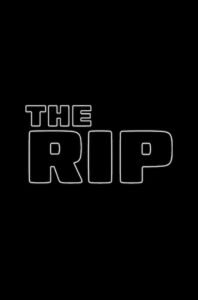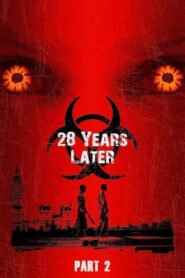

Synopsis
2026 ushers in a bold new entry to science fiction cinema with The Rip, a cerebral thriller exploring the harrowing consequences of crossing into alternate timelines. Directed by visionary filmmaker Emma Reyes and written by sci-fi maverick Kai Tanaka, the film taps into the zeitgeist of parallel universe fascination—bringing emotional depth, suspense, and groundbreaking visuals to audiences craving thoughtful escapism.
What “The Rip” Means
The title refers to a fracture in reality—a phenomenon where the fabric of time and space is torn, creating gateways between alternate worlds. Within the film, “the rip” is both literal and metaphorical: a catalyst for characters to confront other versions of themselves, their choices, and the haunting question: “What if?”
Plot Overview
Dr. Mia Harper, a theoretical physicist, discovers a portal—a rip—into a parallel Earth while conducting an experiment on quantum entanglement. She sees the alternate version of herself, living a different life—one filled with love she never had and a career she didn’t pursue.
As Mia crosses over, she inadvertently brings along a memory echo—a lingering fragment of her consciousness that disrupts the parallel world. This echo begins to merge realities, causing anomalies: cities shift, people vanish, and memories collide. To stabilize both universes, Mia must close the rip—but doing so means losing the life she sees on the other side.
The tension escalates when a military-backed agency learns of Mia’s breakthrough and attempts to weaponize the technology. Now, she’s not only racing against time and unraveling realities but also evading capture.
Key Themes: Identity, Regret, and Responsibility
At its heart, The Rip is a drama masquerading as sci-fi. It grapples with powerful themes:
- Human identity: Who are we without our choices? When confronted with a better or alternate version of ourselves, what stays the same?
- Regret and longing: The film taps into universal longing—”If only I had done that differently…” These “what-ifs” become tangible in Mia’s rip.
- Scientific responsibility: The brilliant discovery turns dangerous when ethics and ambition collide. The characters wrestle with whether humans should meddle with the laws of reality.
By balancing character-driven stakes with cosmic consequences, The Rip becomes more than just a visual spectacle—it becomes deeply relatable.
Cast and Characters
- Amara Singh stars as Dr. Mia Harper, anchoring the story with a performance that balances intellect, vulnerability, and moral conflict.
- Elias Martinez plays Agent Paul Reyes, the military liaison caught between duty and empathy as he grows to care about Mia’s cause.
- Rosalie Chen portrays Mia’s alternate-world counterpart, whose warm presence and life choices force Mia to question everything.
- Victor Lund is a brilliant but ruthless head of the agency’s black-ops division, desperate to tap the rip for power.
Each character is richly layered, offering emotional resonance rather than mere plot functionality. Their interactions push the narrative into ethical thickets.
Direction and Visual Style
Director Emma Reyes—no relation to Agent Reyes—earned praise for her debut feature’s emotional subtlety and visual flair. With The Rip, she elevates her craft:
- Mind-bending world glitches: Walls breathe, skies fracture, and buildings flicker as two realities collide.
- Subtle parallel cues: Everyday details—like a familiar necklace or a song playing—trigger uncanny déjà vu across worlds.
- Juxtaposed visual tones: Mia’s real world is sterile, blue-toned, while the alternate world exudes warmth and organic textures.
Together, these techniques create a disorienting yet compelling aesthetic that never sacrifices emotional clarity.
Science That Feels Real
Instead of gimmicky technobabble, The Rip grounds its sci-fi in quantum physics and human stakes. Writer Kai Tanaka worked with consultants to craft pseudo-plausible theories of parallel universe creation, anchored with real-world analogies:
- Comparing the rip to thread tears in fabric—easy to rip, near impossible to stitch.
- Discussing memory echoes as quantum entanglement leaking consciousness across dimensions.
These clear yet thoughtful devices help audiences grasp concepts without losing emotional connection.
Emotional Stakes and Character Journeys
Beyond the rip’s terror, the film’s power lies in Mia’s emotional journey:
- Ambition: She wants to prove something, both to science and to herself.
- Temptation: When Mia glimpses a life she could have had, the pull is real—and profound.
- Accountability: The memory echo’s chaos forces her to face her responsibility—not just for her life, but for multiple worlds.
- Sacrifice: Closing the rip means erasing what might have been, knowing it may cost her heart.
It’s a journey that lingers long after the closing credits.
Supporting Elements
- Sound Design: Subtle audio cues—door creaks that echo across worlds, overlapping whispers—add an unnerving texture.
- Score: A haunting piano-meets-orchestra soundtrack follows Mia’s emotional arc, swelling during climactic moments and receding during reflective scenes.
- Production Design: Spaces are duplicated but differ in details—a cup’s design, furniture placement—highlighting the butterfly effect of small choices.
These elements work in harmony, reinforcing the film’s themes with subtlety and depth.
Why “The Rip” Matters
In an age crowded with big-budget sci-fi and franchise fatigue, The Rip stands out by offering:
- Elegant emotion: It forgoes spectacle in favor of soul-searching.
- Intellectual intrigue: The film challenges audiences to ponder what it means to be human.
- Emotional complexity: No villain is evil for evil’s sake; everyone is guided by personal pain or hope.
It’s a film that stimulates the mind as much as it pulls on the heartstrings.
Reception and Cultural Impact
Early screenings suggest The Rip is resonating—particularly with audiences who crave thoughtful escapism. Critics praise its:
- Ambitious direction from a rising female filmmaker.
- Nuanced lead performance from Amara Singh.
- Striking balance between hard science and emotional storytelling.
Many see it as a counterpoint to big-budget spectacle—proof that thoughtful, emotionally intelligent sci-fi still holds power.
Final Thoughts
The Rip* is not just another science fiction film—it’s an existential exploration. It examines what it means to exist, to choose, and to lose. In a world where entertainment often prioritizes explosions over questions, The Rip dares to make the rift in reality also a rift in the heart.
For fans of intimate sci-fi dramas like Arrival or Another Earth, this film offers a fresh yet thematically familiar journey. It proves that sometimes, the most profound universes exist within us—and tearing them open can be both terrifying and illuminating.
FAQs
1. Is The Rip a thriller or a philosophical drama?
It’s both—a sci-fi thriller with deep emotional and philosophical layers.
2. Do you need a background in physics to enjoy it?
Not at all. The film explains concepts through simple metaphors, making it accessible and compelling.
3. Is The Rip part of a franchise?
No, it’s an original standalone film meant to spark conversation and introspection.
4. Does the film resolve the rip?
Yes—but not without significant emotional cost for the characters involved.
5. Who will love this movie?
Fans of cerebral drama, emotional sci-fi, and stories that ask deep questions about identity and choice.
Original title The Rip
IMDb Rating n/A n/A votes
Director
Director
Cast
Lt. Dane Dumars
Det. Sgt. JD Byrne














